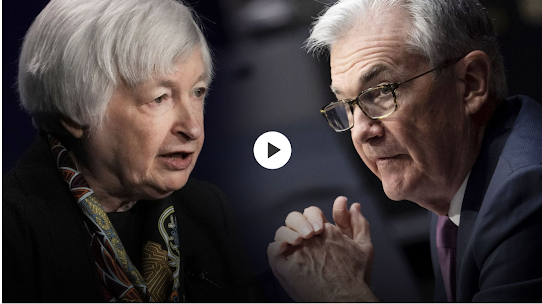The FDIC’s Sweetheart Bank Deal for SVB
First Citizens scores a great deal, while the deposit insurance fund takes a $20 billion hit.
By The Editorial Board
It’s good to be a banker at the remainder counter, especially when the feds are helping with the purchase.
First Citizens BancShares on Sunday night was the lucky winner of the bidding to buy the assets of Silicon Valley Bank, and what a deal it is.
Rather than minimize the cost to the deposit insurance fund as required by law, the Federal Deposit Insurance Corp. seems to have chosen the best political match.
North Carolina-based First Citizens will acquire all of SVB’s deposits, loans and branches but leave $90 billion in securities and other assets with the FDIC.
First Citizens will buy SVB’s $72 billion in loans at a sizable $16.5 billion discount and share future losses or gains with the FDIC.
How sweet it is for First Citizens, whose shares rose 45.5% Monday.
The FDIC loss-share agreement is a tacit recognition that SVB’s large book of loans to unprofitable startups carries substantial credit risk.
SVB’s business model involved extending low-cost credit to tech startups, many with no revenue, and getting repaid when they were acquired by larger companies, raised more private funds or floated shares publicly.
Problem is, rising interest rates have caused venture funding and the market for initial public offerings to dry up.
Market valuations for startups have slumped.
Bigger companies aren’t in the market to buy startups with large amounts of debt relative to revenue.
That means big loan losses could be coming.
Hedge funds might have been interested in buying SVB’s loans, but the FDIC ruled them out for political reasons.
Progressives dislike hedgies, and Silicon Valley venture investors worried they would be less forgiving of startups that couldn’t repay their debt.
SVB often accommodated struggling startups at the request of their venture-capital financiers.
The FDIC says the deal will “minimize disruptions” for SVB borrowers.
First Citizens stressed it is “committed to building on and preserving the strong relationships” with venture and private equity firms.
CEO Frank Holding Jr. added that “together, with the legacy SVB team, we are well positioned to understand the unique financial needs of [the tech] sector.”
They sure are thanks to FDIC assistance, but all this suggests that the FDIC hardly minimized its own risks and costs.
In addition to the loss-share agreement, the FDIC will finance the deal with a five-year $35 billion loan plus a $70 billion line of credit to cover potential deposit flight.
This is a government match made in heaven.
After the deal closes, First Citizens will have $219 billion in assets—double what it had at the end of last year.
This would make it among the 25 largest banks in the U.S. and puts it on the cusp of being classified as too-big-to-fail.
The losers in this sweetheart deal will be other banks (and their customers) that will have to pick up the estimated $20 billion cost to replenish the deposit insurance fund.
That’s about 15% of the entire fund.
By comparison, the 214 bank failures between 2011 and 2022 cost the fund $12.4 billion.
The FDIC might have been able to shut down and sell SVB at a smaller loss had it accepted offers that we were told were floated over the first weekend after its collapse.
But Chairman Martin Gruenberg rejected them out of hostility to consolidation as per the warnings from Sen.
Elizabeth Warren and her protege on the FDIC board, Rohit Chopra.
Now we end up with consolidation anyway at a greater cost to the deposit-insurance fund.
The SVB transaction raises questions about whether political ideology is compromising basic financial competence at the FDIC.
This isn’t the right message to send in a bank panic.

0 comments:
Publicar un comentario